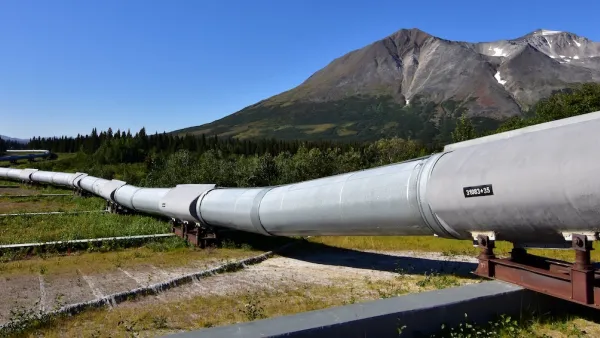The computing power required to mine bitcoins has drawn companies to Washington for the state's cheap, hydroelectric generated power.
"Following the lure of cheap electricity, Bitcoin miners and their power-hungry server farms are making out for sleepy little towns in the Pacific Northwest," reports Sarah Zhang.
Although it doesn't have the same environmental impacts as an aggregate mine or, say, fracking, the production of bitcoins still requires the use of natural resources. "Although Bitcoin is a digital currency, mining it still has a gigantic physical footprint. That's because computers 'mine' Bitcoin by solving a cryptographic equation. To mine more Bitcoin, you need more computing power. Or you can just have more computers."
That means electricity, and in Washington that means hydroelectric power. "Last year, Bitcoin miners were sucking up an estimated 1 million kilowatt-hours per day. That's a hefty electric bill right there. But Washington has some of the lowest electricity rates in the country—less than 2 cents per kilowatt-hour for industrial customers in certain area. The average U.S. household pays something more like 12 cents a kilowatt-hour."
FULL STORY: Why Bitcoin Miners Are Moving to Tiny Towns in Washington State

Planetizen Federal Action Tracker
A weekly monitor of how Trump’s orders and actions are impacting planners and planning in America.

Chicago’s Ghost Rails
Just beneath the surface of the modern city lie the remnants of its expansive early 20th-century streetcar system.

San Antonio and Austin are Fusing Into one Massive Megaregion
The region spanning the two central Texas cities is growing fast, posing challenges for local infrastructure and water supplies.

Since Zion's Shuttles Went Electric “The Smog is Gone”
Visitors to Zion National Park can enjoy the canyon via the nation’s first fully electric park shuttle system.

Trump Distributing DOT Safety Funds at 1/10 Rate of Biden
Funds for Safe Streets and other transportation safety and equity programs are being held up by administrative reviews and conflicts with the Trump administration’s priorities.

German Cities Subsidize Taxis for Women Amid Wave of Violence
Free or low-cost taxi rides can help women navigate cities more safely, but critics say the programs don't address the root causes of violence against women.
Urban Design for Planners 1: Software Tools
This six-course series explores essential urban design concepts using open source software and equips planners with the tools they need to participate fully in the urban design process.
Planning for Universal Design
Learn the tools for implementing Universal Design in planning regulations.
planning NEXT
Appalachian Highlands Housing Partners
Mpact (founded as Rail~Volution)
City of Camden Redevelopment Agency
City of Astoria
City of Portland
City of Laramie





























